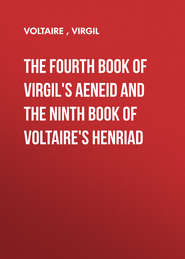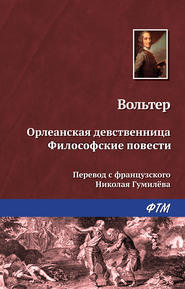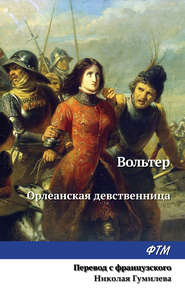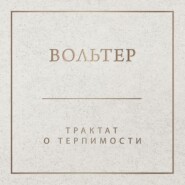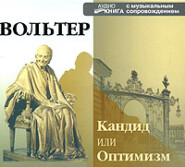По всем вопросам обращайтесь на: info@litportal.ru
(©) 2003-2024.
✖
A Philosophical Dictionary, Volume 10
Настройки чтения
Размер шрифта
Высота строк
Поля
Marriages
Liv. Sous.
For the publication of the bans..... 1 10 For the betrothing........... 2 0 For celebrating the marriage..... 6 0 For the certificate of the publication ofthe bans, and the permission given tothe future husband to go and be marriedin the parish of his future wife… 5 0 For the wedding mass......... 1 10 For the vicar............ 1 10For the clerk of the sacrament..... 1 10 For blessing the bed......... 1 10
Funeral Processions
Of children under seven years old, whenthe clergy do not go in a body: For the curate............ 1 10 For each priest............ 1 10When the clergy go in a body: For the curial fee........... 4 0For the presence of the curate..... 2 0 For each priest............ 0 10 For the vicar............ 1 10 For each singing-boy, when they carry the body.............. 8 0 And when they do not carry it..... 5 0And so of young persons from seven totwelve years old. Of persons above twelve years old: For the curial fee........... 6 0 For the curate's attendance...... 4 0 For each vicar............ 2 0 For the priest............ 1 0 For each singing-boy......... 0 10 Each of the priests that watch the bodyin the night, for drink, etc..... 3 0 And in the day, each......... 2 0 For the celebration of the mass..... 1 0For the service extraordinary; called thecomplete service; viz., the vigils andthe two masses of the Holy Ghost andthe Holy Virgin........... 4 10 For each of the priests that carry thebody............... 1 0 For carrying the great cross..... 0 10For the holy water-pot carrier..... 0 5 For carrying the little cross..... 0 5 For the clerk of the processions… 0 1 For conveying bodies from one church toanother there shall be paid, for eachof the above fees, one-half more. For the reception of bodies thus conveyed: To the curate............ 6 10 To the vicar............ 1 10 To each priest............ 0 15
TEARS
Tears are the silent language of grief. But why? What relation is there between a melancholy idea and this limpid and briny liquid filtered through a little gland into the external corner of the eye which moistens the conjunctiva and little lachrymal points, whence it descends into the nose and mouth by the reservoir called the lachrymal duct, and by its conduits? Why in women and children, whose organs are of a delicate texture, are tears more easily excited by grief than in men, whose formation is firmer?
Has nature intended to excite compassion in us at the sight of these tears, which soften us and lead us to help those who shed them? The female savage is as strongly determined to assist her child who cries, as a lady of the court would be, and perhaps more so, because she has fewer distractions and passions.
Everything in the animal body has, no doubt, its object. The eyes, particularly, have mathematical relations so evident, so demonstrable, so admirable with the rays of light; this mechanism is so divine, that I should be tempted to take for the delirium of a high fever, the audacity of denying the final causes of the structure of our eyes. The use of tears appears not to have so determined and striking an object; but it is probable that nature caused them to flow in order to excite us to pity.
There are women who are accused of weeping when they choose. I am not at all surprised at their talent. A lively, sensible, and tender imagination can fix upon some object, on some melancholy recollection, and represent it in such lively colors as to draw tears; which happens to several performers, and particularly to actresses on the stage.
Women who imitate them in the interior of their houses, join to this talent the little fraud of appearing to weep for their husbands, while they really weep for their lovers. Their tears are true, but the object of them is false.
It is impossible to affect tears without a subject, in the same manner as we can affect to laugh. We must be sensibly touched to force the lachrymal gland to compress itself, and to spread its liquor on the orbit of the eye; but the will alone is required to laugh.
We demand why the same man, who has seen with a dry eye the most atrocious events, and even committed crimes with sang-froid, will weep at the theatre at the representation of similar events and crimes? It is, that he sees them not with the same eyes; he sees them with those of the author and the actor. He is no longer the same man; he was barbarous, he was agitated with furious passions, when he saw an innocent woman killed, when he stained himself with the blood of his friend; he became a man again at the representation of it. His soul was filled with a stormy tumult; it is now tranquil and void, and nature re-entering it, he sheds virtuous tears. Such is the true merit, the great good of theatrical representation, which can never be effected by the cold declamation of an orator paid to tire an audience for an hour.
The capitoul David, who; without emotion, saw and caused the innocent Calas to die on the wheel, would have shed tears at seeing his own crime in a well-written and well-acted tragedy. Pope has elegantly said this in the prologue to Addison's Cato:
Tyrants no more their savage nature kept,
And foes to virtue wondered how they wept.
TERELAS
Terelas, Pterelas, or Pterlaus, just which you please, was the son of Taphus, or Taphius. Which signifies what you say? Gently, I will tell you. This Terelas had a golden lock, to which was attached the destiny of the town of Taphia, and what is more, this lock rendered Terelas immortal, as he would not die while this lock remained upon his head; for this reason he never combed it, lest he should comb it off. An immortality, however, which depends upon a lock of hair, is not the most certain of all things.
Amphitryon, general of the republic of Thebes, besieged Taphia, and the daughter of King Terelas became desperately in love with him on seeing him pass the ramparts. Thus excited, she stole to her father in the dead of night, cut off his golden lock, and sent it to the general, in consequence of which the town was taken, and Terelas killed. Some learned men assure us, that it was the wife of Terelas who played him this ill turn; and as they ground their opinions upon great authorities, it might be rendered the subject of a useful dissertation. I confess that I am somewhat inclined to be of the opinion of those learned persons, as it appears to me that a wife is usually less timorous than a daughter.
The same thing happened to Nisus, king of Megara, which town was besieged by Minos. Scylla, the daughter of Nisus, became madly in love with him; and although in point of fact, her father did not possess a lock of gold, he had one of purple, and it is known that on this lock depended equally his life and the fate of the Megarian Empire. To oblige Minos, the dutiful Scylla cut it off, and presented it to her lover.
"All the history of Minos is true," writes the profound Bannier; "and this is attested by all antiquity." I believe it precisely as I do that of Terelas, but I am embarrassed between the profound Calmet and the profound Huet. Calmet is of opinion, that the adventure of the lock of Nisus presented to Minos, and that of Terelas given to Amphitryon, are obviously taken from the genuine history of Samson. Huet the demonstrator, on the contrary shows, that Minos is evidently Moses, as cutting out the letters n and e, one of these names is the anagram of the other.
But, notwithstanding the demonstration of Huet, I am entirely on the side of the refined Dom Calmet, and for those who are of the opinion that all which relates to the locks of Terelas and of Nisus is connected with the hair of Samson. The most convincing of my triumphant reasons is, that without reference to the family of Terelas, with the metamorphoses of which I am unacquainted, it is certain that Scylla was changed into a lark, and her father Nisus into a sparrow-hawk. Now, Bochart being of opinion that a sparrow-hawk is called "neis" in Hebrew, I thence conclude, that the history of Terelas, Amphitryon, Nisus, and Minos is copied from the history of Samson.
I am aware that a dreadful sect has arisen in our days, equally detested by God and man, who pretend that the Greek fables are more ancient than the Jewish history; that the Greeks never heard a word of Samson any more than of Adam, Eve, Cain, Abel, etc., which names are not cited by any Greek author. They assert, as we have modestly intimated – in the articles on "Bacchus" and "Jew" – that the Greeks could not possibly take anything from the Jews, but that the Jews might derive something from the Greeks.
I answer with the doctor Hayet, the doctor Gauchat, the ex-Jesuit Patouillet, and the ex-Jesuit Paulian, that this is the most damnable heresy which ever issued from hell; that it was formerly anathematized in full parliament, on petition, and condemned in the report of the Sieur P.; and finally, that if indulgence be extended to those who support such frightful systems, there will be no more certainty in the world; but that Antichrist will quickly arrive, if he has not come already.
TESTES
SECTION I
This word is scientific, and a little obscure, signifying small witnesses. Sixtus V., a Cordelier become pope, declared, by his letter of the 25th of June, 1587, to his nuncio in Spain, that he must unmarry all those who were not possessed of testicles. It seems by this order, which was executed by Philip II., that there were many husbands in Spain deprived of these two organs. But how could a man, who had been a Cordelier, be ignorant that the testicles of men are often hidden in the abdomen, and that they are equally if not more effective in that situation? We have beheld in France three brothers of the highest rank, one of whom possessed three, the other only one, while the third possessed no appearance of any, and yet was the most vigorous of the three.
The angelic doctor, who was simply a Jacobin, decides that two testicles are "de essentia matrimonii" (of the essence of marriage); in which opinion he is followed by Ricardus, Scotus, Durandus, and Sylvius. If you are not able to obtain a sight of the pleadings of the advocate Sebastian Rouillard, in 1600, in favor of the testicles of his client, concealed in his abdomen, at least consult the dictionary of Bayle, at the article "Quellenec." You will there discover, that the wicked wife of the client of Sebastian Rouillard wished to render her marriage void, on the plea that her husband could not exhibit testicles. The defendant replied, that he had perfectly fulfilled his matrimonial duties, and offered the usual proof of a re-performance of them in full assembly. The jilt replied, that this trial was too offensive to her modesty, and was, moreover, superfluous, since the defendant was visibly deprived of testicles, and that messieurs of the assembly were fully aware that testicles are necessary to perfect consummation.
I am unacquainted with the result of this process, but I suspect that her husband lost his cause. What induces me to think so is, that the same Parliament of Paris, on the 8th of January, 1665, issued a decree, asserting the necessity of two visible testicles, without which marriage was not to be contracted. Had there been any member in the assembly in the situation described, and reduced to the necessity of being a witness, he might have convinced the assembly that it decided without a due knowledge of circumstances. Pontas may be profitably consulted on testicles, as well as upon any other subject. He was a sub-penitentiary, who decided every sort of case, and who sometimes comes near to Sanchez.
SECTION II
A word or two on hermaphrodites. A prejudice has for a long time crept into the Russian Church, that it is not lawful to say mass without testicles; or, at least, they must be hid in the officiator's pocket. This ancient idea was founded in the Council of Nice, who forbade the admission into orders of those who mutilated themselves. The example of Origen, and of certain enthusiasts, was the cause of this order, which was confirmed a second time in the Council of Aries.
The Greek Church did not exclude from the altar those who had endured the operation of Origen against their own consent. The patriarchs of Constantinople, Nicetas, Ignatius, Photius, and Methodius, were eunuchs. At present this point of discipline seems undecided in the Catholic Church. The most general opinion, however, is, that in order to be ordained a priest, a eunuch will require a dispensation.
The banishment of eunuchs from the service of the altar appears contrary to the purity and chastity which the service exacts; and certainly such of the priests as confess handsome women and girls would be exposed to less temptation. Opposing reasons of convenience and decorum have determined those who make these laws.
In Leviticus, all corporeal defects are excluded from the service of the altar – the blind, the crooked, the maimed, the lame, the one-eyed, the leper, the scabby, long noses, and short noses. Eunuchs are not spoken of, as there were none among the Jews. Those who acted as eunuchs in the service of their kings, were foreigners.
It has been demanded whether an animal, a man for example, can possess at once testicles and ovaries, or the glands which are taken for ovaries; in a word, the distinctive organs of both sexes? Can nature form veritable hermaphrodites, and can a hermaphrodite be rendered pregnant? I answer, that I know nothing about it, nor the ten-thousandth part of what is within the operation of nature. I believe, however, that Europe has never witnessed a genuine hermaphrodite, nor has it indeed produced elephants, zebras, giraffes, ostriches, and many more of the animals which inhabit Asia, Africa, and America. It is hazardous to assert, that because we never beheld a thing, it does not exist.
Examine "Cheselden," page 34, and you will behold there a very good delineation of an animal man and woman – a negro and negress of Angola, which was brought to London in its infancy, and carefully examined by this celebrated surgeon, as much distinguished for his probity as his information. The plate is entitled "Members of an Hermaphrodite Negro, of the Age of Twenty-six Years, of both Sexes." They are not absolutely perfect, but they exhibit a strange mixture of the one and the other.
Liv. Sous.
For the publication of the bans..... 1 10 For the betrothing........... 2 0 For celebrating the marriage..... 6 0 For the certificate of the publication ofthe bans, and the permission given tothe future husband to go and be marriedin the parish of his future wife… 5 0 For the wedding mass......... 1 10 For the vicar............ 1 10For the clerk of the sacrament..... 1 10 For blessing the bed......... 1 10
Funeral Processions
Of children under seven years old, whenthe clergy do not go in a body: For the curate............ 1 10 For each priest............ 1 10When the clergy go in a body: For the curial fee........... 4 0For the presence of the curate..... 2 0 For each priest............ 0 10 For the vicar............ 1 10 For each singing-boy, when they carry the body.............. 8 0 And when they do not carry it..... 5 0And so of young persons from seven totwelve years old. Of persons above twelve years old: For the curial fee........... 6 0 For the curate's attendance...... 4 0 For each vicar............ 2 0 For the priest............ 1 0 For each singing-boy......... 0 10 Each of the priests that watch the bodyin the night, for drink, etc..... 3 0 And in the day, each......... 2 0 For the celebration of the mass..... 1 0For the service extraordinary; called thecomplete service; viz., the vigils andthe two masses of the Holy Ghost andthe Holy Virgin........... 4 10 For each of the priests that carry thebody............... 1 0 For carrying the great cross..... 0 10For the holy water-pot carrier..... 0 5 For carrying the little cross..... 0 5 For the clerk of the processions… 0 1 For conveying bodies from one church toanother there shall be paid, for eachof the above fees, one-half more. For the reception of bodies thus conveyed: To the curate............ 6 10 To the vicar............ 1 10 To each priest............ 0 15
TEARS
Tears are the silent language of grief. But why? What relation is there between a melancholy idea and this limpid and briny liquid filtered through a little gland into the external corner of the eye which moistens the conjunctiva and little lachrymal points, whence it descends into the nose and mouth by the reservoir called the lachrymal duct, and by its conduits? Why in women and children, whose organs are of a delicate texture, are tears more easily excited by grief than in men, whose formation is firmer?
Has nature intended to excite compassion in us at the sight of these tears, which soften us and lead us to help those who shed them? The female savage is as strongly determined to assist her child who cries, as a lady of the court would be, and perhaps more so, because she has fewer distractions and passions.
Everything in the animal body has, no doubt, its object. The eyes, particularly, have mathematical relations so evident, so demonstrable, so admirable with the rays of light; this mechanism is so divine, that I should be tempted to take for the delirium of a high fever, the audacity of denying the final causes of the structure of our eyes. The use of tears appears not to have so determined and striking an object; but it is probable that nature caused them to flow in order to excite us to pity.
There are women who are accused of weeping when they choose. I am not at all surprised at their talent. A lively, sensible, and tender imagination can fix upon some object, on some melancholy recollection, and represent it in such lively colors as to draw tears; which happens to several performers, and particularly to actresses on the stage.
Women who imitate them in the interior of their houses, join to this talent the little fraud of appearing to weep for their husbands, while they really weep for their lovers. Their tears are true, but the object of them is false.
It is impossible to affect tears without a subject, in the same manner as we can affect to laugh. We must be sensibly touched to force the lachrymal gland to compress itself, and to spread its liquor on the orbit of the eye; but the will alone is required to laugh.
We demand why the same man, who has seen with a dry eye the most atrocious events, and even committed crimes with sang-froid, will weep at the theatre at the representation of similar events and crimes? It is, that he sees them not with the same eyes; he sees them with those of the author and the actor. He is no longer the same man; he was barbarous, he was agitated with furious passions, when he saw an innocent woman killed, when he stained himself with the blood of his friend; he became a man again at the representation of it. His soul was filled with a stormy tumult; it is now tranquil and void, and nature re-entering it, he sheds virtuous tears. Such is the true merit, the great good of theatrical representation, which can never be effected by the cold declamation of an orator paid to tire an audience for an hour.
The capitoul David, who; without emotion, saw and caused the innocent Calas to die on the wheel, would have shed tears at seeing his own crime in a well-written and well-acted tragedy. Pope has elegantly said this in the prologue to Addison's Cato:
Tyrants no more their savage nature kept,
And foes to virtue wondered how they wept.
TERELAS
Terelas, Pterelas, or Pterlaus, just which you please, was the son of Taphus, or Taphius. Which signifies what you say? Gently, I will tell you. This Terelas had a golden lock, to which was attached the destiny of the town of Taphia, and what is more, this lock rendered Terelas immortal, as he would not die while this lock remained upon his head; for this reason he never combed it, lest he should comb it off. An immortality, however, which depends upon a lock of hair, is not the most certain of all things.
Amphitryon, general of the republic of Thebes, besieged Taphia, and the daughter of King Terelas became desperately in love with him on seeing him pass the ramparts. Thus excited, she stole to her father in the dead of night, cut off his golden lock, and sent it to the general, in consequence of which the town was taken, and Terelas killed. Some learned men assure us, that it was the wife of Terelas who played him this ill turn; and as they ground their opinions upon great authorities, it might be rendered the subject of a useful dissertation. I confess that I am somewhat inclined to be of the opinion of those learned persons, as it appears to me that a wife is usually less timorous than a daughter.
The same thing happened to Nisus, king of Megara, which town was besieged by Minos. Scylla, the daughter of Nisus, became madly in love with him; and although in point of fact, her father did not possess a lock of gold, he had one of purple, and it is known that on this lock depended equally his life and the fate of the Megarian Empire. To oblige Minos, the dutiful Scylla cut it off, and presented it to her lover.
"All the history of Minos is true," writes the profound Bannier; "and this is attested by all antiquity." I believe it precisely as I do that of Terelas, but I am embarrassed between the profound Calmet and the profound Huet. Calmet is of opinion, that the adventure of the lock of Nisus presented to Minos, and that of Terelas given to Amphitryon, are obviously taken from the genuine history of Samson. Huet the demonstrator, on the contrary shows, that Minos is evidently Moses, as cutting out the letters n and e, one of these names is the anagram of the other.
But, notwithstanding the demonstration of Huet, I am entirely on the side of the refined Dom Calmet, and for those who are of the opinion that all which relates to the locks of Terelas and of Nisus is connected with the hair of Samson. The most convincing of my triumphant reasons is, that without reference to the family of Terelas, with the metamorphoses of which I am unacquainted, it is certain that Scylla was changed into a lark, and her father Nisus into a sparrow-hawk. Now, Bochart being of opinion that a sparrow-hawk is called "neis" in Hebrew, I thence conclude, that the history of Terelas, Amphitryon, Nisus, and Minos is copied from the history of Samson.
I am aware that a dreadful sect has arisen in our days, equally detested by God and man, who pretend that the Greek fables are more ancient than the Jewish history; that the Greeks never heard a word of Samson any more than of Adam, Eve, Cain, Abel, etc., which names are not cited by any Greek author. They assert, as we have modestly intimated – in the articles on "Bacchus" and "Jew" – that the Greeks could not possibly take anything from the Jews, but that the Jews might derive something from the Greeks.
I answer with the doctor Hayet, the doctor Gauchat, the ex-Jesuit Patouillet, and the ex-Jesuit Paulian, that this is the most damnable heresy which ever issued from hell; that it was formerly anathematized in full parliament, on petition, and condemned in the report of the Sieur P.; and finally, that if indulgence be extended to those who support such frightful systems, there will be no more certainty in the world; but that Antichrist will quickly arrive, if he has not come already.
TESTES
SECTION I
This word is scientific, and a little obscure, signifying small witnesses. Sixtus V., a Cordelier become pope, declared, by his letter of the 25th of June, 1587, to his nuncio in Spain, that he must unmarry all those who were not possessed of testicles. It seems by this order, which was executed by Philip II., that there were many husbands in Spain deprived of these two organs. But how could a man, who had been a Cordelier, be ignorant that the testicles of men are often hidden in the abdomen, and that they are equally if not more effective in that situation? We have beheld in France three brothers of the highest rank, one of whom possessed three, the other only one, while the third possessed no appearance of any, and yet was the most vigorous of the three.
The angelic doctor, who was simply a Jacobin, decides that two testicles are "de essentia matrimonii" (of the essence of marriage); in which opinion he is followed by Ricardus, Scotus, Durandus, and Sylvius. If you are not able to obtain a sight of the pleadings of the advocate Sebastian Rouillard, in 1600, in favor of the testicles of his client, concealed in his abdomen, at least consult the dictionary of Bayle, at the article "Quellenec." You will there discover, that the wicked wife of the client of Sebastian Rouillard wished to render her marriage void, on the plea that her husband could not exhibit testicles. The defendant replied, that he had perfectly fulfilled his matrimonial duties, and offered the usual proof of a re-performance of them in full assembly. The jilt replied, that this trial was too offensive to her modesty, and was, moreover, superfluous, since the defendant was visibly deprived of testicles, and that messieurs of the assembly were fully aware that testicles are necessary to perfect consummation.
I am unacquainted with the result of this process, but I suspect that her husband lost his cause. What induces me to think so is, that the same Parliament of Paris, on the 8th of January, 1665, issued a decree, asserting the necessity of two visible testicles, without which marriage was not to be contracted. Had there been any member in the assembly in the situation described, and reduced to the necessity of being a witness, he might have convinced the assembly that it decided without a due knowledge of circumstances. Pontas may be profitably consulted on testicles, as well as upon any other subject. He was a sub-penitentiary, who decided every sort of case, and who sometimes comes near to Sanchez.
SECTION II
A word or two on hermaphrodites. A prejudice has for a long time crept into the Russian Church, that it is not lawful to say mass without testicles; or, at least, they must be hid in the officiator's pocket. This ancient idea was founded in the Council of Nice, who forbade the admission into orders of those who mutilated themselves. The example of Origen, and of certain enthusiasts, was the cause of this order, which was confirmed a second time in the Council of Aries.
The Greek Church did not exclude from the altar those who had endured the operation of Origen against their own consent. The patriarchs of Constantinople, Nicetas, Ignatius, Photius, and Methodius, were eunuchs. At present this point of discipline seems undecided in the Catholic Church. The most general opinion, however, is, that in order to be ordained a priest, a eunuch will require a dispensation.
The banishment of eunuchs from the service of the altar appears contrary to the purity and chastity which the service exacts; and certainly such of the priests as confess handsome women and girls would be exposed to less temptation. Opposing reasons of convenience and decorum have determined those who make these laws.
In Leviticus, all corporeal defects are excluded from the service of the altar – the blind, the crooked, the maimed, the lame, the one-eyed, the leper, the scabby, long noses, and short noses. Eunuchs are not spoken of, as there were none among the Jews. Those who acted as eunuchs in the service of their kings, were foreigners.
It has been demanded whether an animal, a man for example, can possess at once testicles and ovaries, or the glands which are taken for ovaries; in a word, the distinctive organs of both sexes? Can nature form veritable hermaphrodites, and can a hermaphrodite be rendered pregnant? I answer, that I know nothing about it, nor the ten-thousandth part of what is within the operation of nature. I believe, however, that Europe has never witnessed a genuine hermaphrodite, nor has it indeed produced elephants, zebras, giraffes, ostriches, and many more of the animals which inhabit Asia, Africa, and America. It is hazardous to assert, that because we never beheld a thing, it does not exist.
Examine "Cheselden," page 34, and you will behold there a very good delineation of an animal man and woman – a negro and negress of Angola, which was brought to London in its infancy, and carefully examined by this celebrated surgeon, as much distinguished for his probity as his information. The plate is entitled "Members of an Hermaphrodite Negro, of the Age of Twenty-six Years, of both Sexes." They are not absolutely perfect, but they exhibit a strange mixture of the one and the other.







